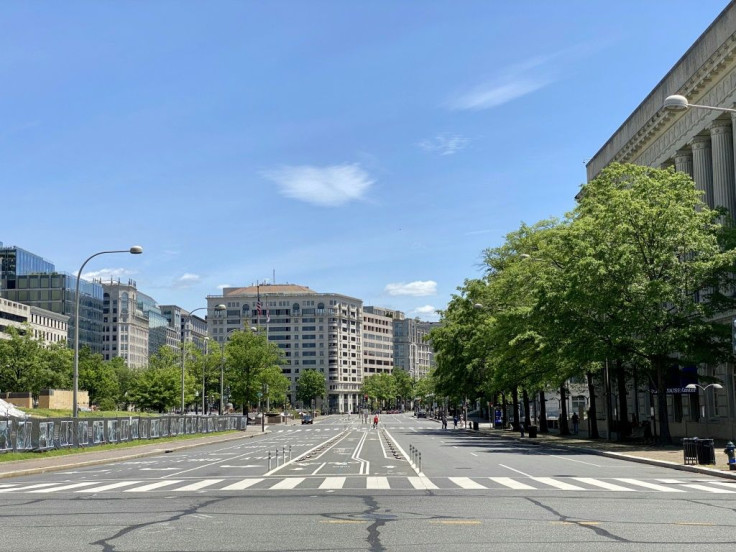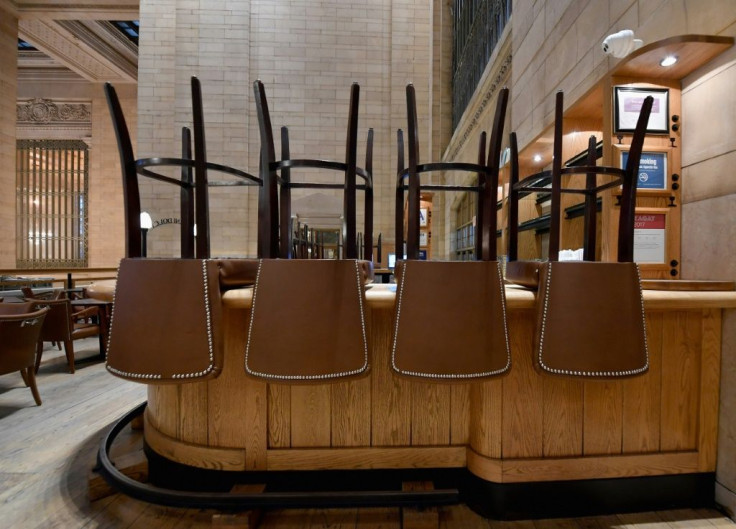Restaurants Warn Congress That Omicron Will Cause More Shutdowns As Stimulus Funds Run Dry
The restaurant industry is calling on Congress for help again, sounding the alarm that the Omicron variant of COVID-19 is threatening jobs in this sector.
In a letter sent to congressional leaders on Monday, the National Restaurant Association issued an update on how Omicron was harming the industry. Included with the letter was a warning that restaurants were approaching a breaking point as the virus scares away patrons, costing businesses revenue and putting 1.6 million jobs at risk.
"Two years into the pandemic, restaurants are still struggling to keep their doors open amid a surge in coronavirus cases, inflation, a labor shortage, and supply chain delays," said Sean Kennedy, the Association's executive vice president for public affairs. "After two years of closures...a dangerous number of restaurants are at the end of the line."
To support these claims, Kennedy referred to survey data compiled by the National Restaurant Association that highlighted the plight of the industry amid heightened worries. It found that 88% of restaurants experienced a decline in customer demand for indoor on-premises dining because of Omicron, 76% of operators report that business conditions are worse now than three months ago and 74% say their restaurant is less profitable now than it was before the pandemic.
Kennedy said the data show that the recovery of the restaurant industry is "paralyzed" and "nowhere near complete." To address this, Kennedy encouraged lawmakers to invest a new round of stimulus dollars into the Restaurant Revitalization Fund (RRF), a program born from the American Rescue Plan last year that distributed grants to struggling restaurants. This, he contends, would help save as many as 1.6 million jobs.
"The RRF was a critical lifeline to many, but far more remain on the sidelines, desperately looking for support amidst continued economic uncertainty. The decisions you make in the coming weeks will be critical toward the future of the restaurants that are so proud to serve your communities,” said Kennedy.

According to the Association’s data, nearly 50% of restaurant operators that did not receive RRF grants feel it's unlikely that they will stay in business beyond the pandemic without a grant. Among those that applied for, but did not receive a grant from the RRF, it found that 94% said a grant would enable them to retain or hire back employees.
The RRF’s grants were designed to make up for a restaurant’s full pandemic losses of up to $5 million for a single location or $10 million for a business with fewer than 20 locations. Publicly traded companies were ineligible, but their franchisees could still apply.
Kennedy’s appeal may be supported by other numbers that suggest the call for help may be necessary. Recent job data show that the service sector, particularly the leisure and hospitality sectors, has posted solid numbers in recent months even as it was buffeted by inflation and the pandemic.
However, this same data also suggest that the ones posting these strong numbers are coming from large businesses with over 100 employees. Smaller and medium businesses saw growth, too, but not on the same level as bigger companies with more resources at their disposal.

© Copyright IBTimes 2024. All rights reserved.





















